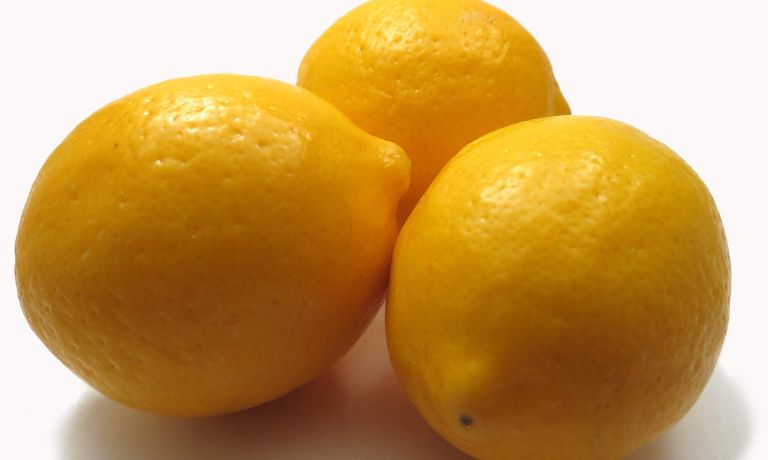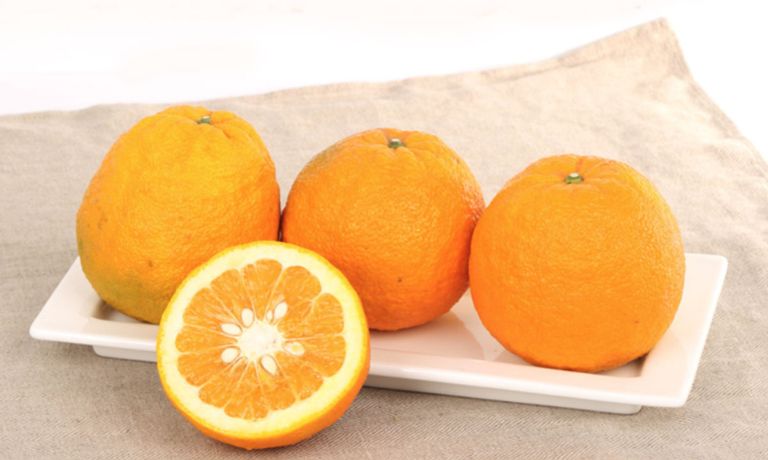Yuzu is an incredibly popular citrus fruit due to its unique flavor profile.
However, it is not always available and can sometimes be expensive.
Fortunately, there are a few alternatives that are just as flavorful – if not more so!
Learn more about them here and find out which substitute for Yuzu works best for your needs.
What Is Yuzu?
Yuzu is a Japanese citrus fruit that is closely related to the mandarin orange.
It has a tart flavor and can be used in cooking, as well as juiced for its refreshing taste.
Yuzu has long been used in Japan for its medicinal benefits, such as aiding digestion and fighting colds.
Recently, yuzu has become popular in other parts of the world due to its unique flavor and health benefits, making it a versatile ingredient to use in both sweet and savory dishes.
With its bright yellow color and zesty flavor, yuzu adds vibrance to any dish or drink you make with it!

Substitutes For Yuzu
There are several other ingredients that offer similar unique flavors and aromas that can make up for the lack of yuzu in your dish or drink.
Here are some great alternatives:
Meyer Lemons
Meyer lemons have a sweeter taste than regular lemons, and their tartness is akin to that of yuzu.
These fruits are also readily available in most grocery stores, so you won’t have to go on a wild goose chase to find them.
Meyer lemons can be used in place of yuzu in marinades, dressings, and sauces.
They can also be used to make yuzu juice by mixing the juice of regular lemons with a small amount of mandarin oranges.
Plus, Meyer lemons are much easier to work with since their skin is softer and the flesh is less acidic than regular lemons.

Kaffir Lime
Kaffir lime is commonly found in Southeast Asia and is known for its sour, citrus scent.
The juice of Kaffir lime can be used as a substitute for yuzu.
This option is not as easily available, but if you can find it, it is worth trying in some of your favorite dishes.
Kaffir lime is perfect for use in marinades, dressings, and sauces.
It can also be used in place of yuzu in cocktails and other beverages.
Additionally, the rind and leaves of Kaffir lime can be used to give flavor to Thai curries and soups.
Kaffir lime is more acidic than yuzu, so it is best to use sparingly.
Try using a mix of both kaffir lime juice and zest for an intense citrus flavor that packs a punch.

Bergamot
Bergamot is a small citrus fruit that is primarily grown in Italy. It has a fragrant and sweet flavor.
Bergamot can be used as an alternative to yuzu because of its sweet and tangy flavor.
Although bergamot is not as readily available as other substitutes, it can be found in grocery stores or online retailers.
Bergamot can also be used as a flavoring in tea, candy, and baked goods.
The citrusy flavor of bergamot makes it ideal for adding a distinct and unique taste to any recipe.

Buddha’s Hand
Buddha’s Hand is a citrus fruit originating from China that has become increasingly popular among Western chefs.
It has a bumpy yellow exterior and long “fingers” that resemble a hand, hence the name.
The fruit’s flesh is inedible, but the peel contains a fragrant oil that is similar to yuzu.
This oil can be used in recipes as a substitute for yuzu juice or zest, depending on your needs.
The flavor is intense and a bit sweeter than yuzu, so you may need to adjust the measurements to get the desired flavor profile.

Dekopon
Dekopon, also called Sumo citrus or Shiranui, is a relatively new citrus fruit that comes from Japan.
The fruit is larger than a mandarin and has a distinctive bump on the top.
The flavor is similar to a mix of orange, mandarin, and grapefruit, with a slightly tart and sweet taste.
The juice of Dekopon can be used in recipes that require a citrus flavor, although it may lack the floral notes that yuzu is known for.

Dangyuja
Dangyuja is a citrus fruit that is similar to yuzu and is commonly used in Korean cuisine.
It has a sour and tangy flavor with a slightly sweet aftertaste.
The fruit comes in various sizes and shapes, ranging from round to elongated.
The juice and zest of Dangyuja can be used as a substitute for yuzu, although you may need to adjust the measurements to get the desired flavor.
Dangyuja is not widely available outside of Korea, so you may need to order it online or visit a specialty store to find it.
However, using Dangyuja is a way to try new flavors and explore different cultures.
It can be used in sauces, marinades, dressings, soups, and more.

Ponzu Sauce
Ponzu sauce is a Japanese citrus-based sauce that is often used as a condiment.
It is made by combining some vegetables with citrus juice and soy sauce.
Ponzu sauce has a tart flavor profile similar to yuzu, making it an excellent substitute.
You can find ponzu sauce in most grocery stores or make your own by mixing citrus juice and soy sauce.
Ponzu sauce can also be used to marinate or as a dipping sauce.
Ponzu sauce will add more complexity and brightness to any dish, making it a great alternative to the traditional yuzu.

FAQs
Does Yuzu Taste The Same As A Meyer Lemon?
No, yuzu and meyer lemons have different flavor profiles.
Yuzu has a tart, floral taste while meyer lemons are sweeter with more subtle notes of citrus.
What Is The Best Alternative To Yuzu?
The best alternatives to yuzu are Buddha’s Hand, Dekopon, and Dangyuja due to their similar flavor profile.
However, you may need to adjust the measurements of these substitutes to get the desired flavor.
Can I Use Ponzu Sauce As A Substitute For Yuzu?
Yes, ponzu sauce can be used as a substitute for yuzu due to its tart flavor profile.
You can find ponzu sauce in most grocery stores or make your own by mixing citrus juice and soy sauce.
Ponzu sauce can also be used to marinate or as a dipping sauce.
Can I Use Bergamot As A Substitute For Yuzu?
Yes, bergamot can be used as an alternative to yuzu because of its sweet and tangy flavor.
Although bergamot is not as readily available as other substitutes, it can be found in grocery stores or online retailers.
Bergamot can also be used as a flavoring in tea, candy, and baked goods.
Conclusion
In conclusion, we have explored some of the unique flavors and benefits of the substitute for yuzu.
While it can be a difficult ingredient to find, it’s an ideal choice for infusing unique aromas and bright flavors into many dishes.
Its health benefits can also make it a great choice for adding nutritional value to your meals.

